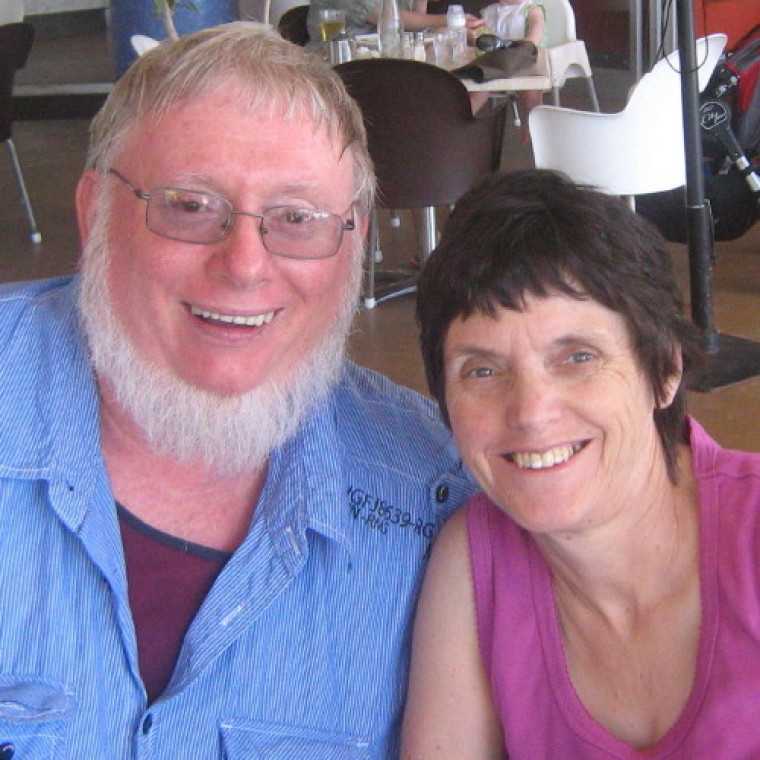
Mark Tronson is a retired Baptist minister who founded in 1982 the Sports and Leisure Ministry (under Heads of Churches), was the Australian Cricket Team chaplain for 17 years to 2001 and a receiptent of the Olympic Ministry Medal presented by Olympian of the Century Carl Lewis in 2009, an author of 24 books and a prolific writer.
In this series on Miracles, Mark Tronson is taking the reader of a journey of faith through his own ministry illustrating time and time again how the Lord's touch blossomed a situation where the only response was to offer praise to the Almighty.
Christian Ministries and Missions across the centuries can point to similar outcomes which has resulted not so much in new buildings but in both the intangible and tangible such as changed lives for Jesus or the excess of alcohol converted into children's shoes.
This tenth article in the series on miracles is the testimony not only of Mark Tronson but of hundreds of thousands of other Christians through the centuries who have totally depended upon the Lord for their finances.
Mark and Delma Tronson have lived by 'faith financial support' for 29 years. He says that he has often been told, that if he knew how it worked, he would be dangerous. If that were so, he says it would have followed a family tradition as his great grandfather T B Tronson established a drapery business in Gympie Queensland during the gold rush and made a small fortune.
However, that was not the direction of his life's work as a Christian missionary and instead took a path as a 'faith-financed missionary'.
Mark Tronson says that a first step in trying to understand this, is to define the income stream of a faith financed missionary. This should not be confused with those who are funded through a Missions organisation or self-funded through established financial arrangements.
The key term is 'income stream'. The traditional understanding of someone who is a 'faith-financed missionary' is of someone dependent entirely on monetary gifts to enable them to fund their mission activity ans family living. This definition excludes those who volunteer either part time or full time and using their own resources such as superannuation monies or investments to fund their mission activities.
Theologically, a directive was given by Jesus to the disciples to take nothing with them as their needs will be supplied in Kingdom ministry. It was functioning in the first five centuries of the Christian era and then regained prominence in the Middle Ages, as illustrated by Francis of Assisi.
It gathered momentum with the protesters (Protestants) in the post-Reformation era and became entrenched in Puritanism theology in the 18th century by John Wesley's followers, who came to be known as the Methodists as they followed a method for church governance, ministry and mission.
Over the following three hundred years, 'Evangelicals' (emphasising evangelism and strictly following the New Testament for their religious practice) took to 'faith-financed living' with a passion. Mark Tronson says you will meet 'faith-financed missionaries' anywhere, even in countries where you may least expect them.
Evangelicals and their financial supporters are normally not big spenders on alcohol, smoking or indulgent luxuries, and as as a result available monies are given to missionaries. 'Faith financed missionaries' can attest like their forebears, that with prayer, the Lord sends in the funds. The philosophy of Evangelical giving is that it is a gift to the Lord.
This explains the extraordinary mindset of Christians which has enabled funding 'faith-financed missionaries' over many centuries. It is an expression of 'love' to give to the Lord's work, an unexplainable joy. This is magnified in the real world, by the building of trust when those who give receive regular communication from the faith-financed ministries, detailing how their money is put to use.
Mark Tronson recounts a seminar he attended in 1988 at the Third World Congress on Sports Mission prior to the Seoul Olympics. They were instructed on two critical aspects of faith-funding, a viewpoint which changed his life. First, when Christian people give, they 'trust you' with their money, and second, when you yourself give money to those in mission you receive the 'joy of the Lord', so too those who give to you, likewise receive that same joy.
Mark Tronson maintains that the corollary is also just as critical. The 'faith-financed missionary' has the 'Gift of Faith' to enable him to rely safely on the Lord for his needs to be met. This is a specific Gift from the Lord, as the person in mission needs to concentrate on the Lord's work, not on material gain nor where the next dollar is coming from.
Jesus promised our "needs" would be met and that has proved sufficient over the centuries, and this is in tune with the sacrificial life of missionaries. These components: The Givers in Faith and the receivers who have the Gift of Faith, function as an integral coherent unit of trust in the Lord's provision.
There is a Biblical Kingdom supernatural principle which is difficult to explain and somewhat unfathomable, but the more one gives to the Lord with integrity of heart the more one receives in return in all manner of ways.
This has been the testimony of Mark and Delma Tronson. This is the miracle of faith finances, that over 29 years as evidenced by the previous nine "miracle" articles, they have lived and ministered with the sacrificial and precious giving of people who trust them with their money in the name of the Lord Jesus.
In June a second series of 10 miracle article will centre of how each generic sport developed its chaplaincy ministry.
